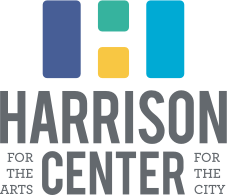We Are City - Reflections
 We had a fabulous time hosting and sponsoring the We Are City Summit held recently. The summit brought together urban thinkers from Indianapolis and abroad speaking to the challenges and benefits of city dwelling. We asked a few attendees to share with us what they learned and how to apply it.
We had a fabulous time hosting and sponsoring the We Are City Summit held recently. The summit brought together urban thinkers from Indianapolis and abroad speaking to the challenges and benefits of city dwelling. We asked a few attendees to share with us what they learned and how to apply it.
By Kristin Hess
There were many important takeaways and concepts to digest, but in the end, one phrase has stuck with me most: cities are serious.
Oliver Blank is a brilliant composer who works for the Civic Center in New Orleans to spark citywide conversations about dignity in public space. Blank’s presentation was authentic, inspiring, interesting, and powerful. It’s no surprise that his words would resonate in such a meaningful way.
After stating that “cities are serious,” it instantly brought me back to a Super Bowl memory of mine. A few days before the big game, I was commuting by bicycle to a fundraising meeting. I was making my way through the growing crowd, when I heard someone say to a friend, “Look! She’s on a bicycle! She must live here.” The comment totally caught me off guard and the first response that came to mind was a very sarcastic, “Yep, I’m playing city!”
Now, I didn’t actually say it, but the thought has stuck with me for quite some time. We’re certainly not playing city; we are a real city to be taken very seriously.
I think it’s high time we embrace the need to question, critique and reevaluate our behaviors, though, and summits like We Are City provide a great place to start. Being part of a city is a big deal. Of course having fun (dare I say having serious fun?!) is vital, but there also comes a point where we recognize the whole picture. Certainly we have flourishing First Fridays and unbelievable food trucks, but let’s not forget the neighborhoods with an equal ratio of boarded-up homes to those that aren’t, or our contaminated waterways. The whole picture of Indianapolis is serious and big in numerous ways.
One of my favorite parts about living in Indianapolis is that it’s a city I don’t just live in; I get to be part of, too, and sew myself into the fabric, if I so choose. But ownership demands participation, and that’s where the gray comes in: How do I want to be engaged? Where can I be most effective? What are my primary concerns? How do I convert aspirations into action?
Linking answers to these questions, my friends, is where our true light shines, and We are City reminded me of that. After all, I want to live in a city of doers who don’t mindlessly “play city” because it’s expected: we are a unique, thriving, difficult, and transformational city. And how I perceive we're being (not just inhabiting or working within) a city is likely very different than my neighbor, which is the beauty and harsh reality of it all. But let’s remember that being our serious, exceptional city demands a wide variety of collective action to catalyze much, much more.
Kristin Hess is a programs and communications coordinator for Indiana Humanities (www.indianahumanities.org ), a statewide nonprofit that encourages Hoosiers to think, read, and talk.
By Justin Brady
At Achieve we work with nonprofits to visually communicate complex ideas, so I was excited to see design take a prominent role in several We Are City sessions.
In particular, I loved how Valeria Mogilevich from the Center for Urban Pedagog worked to solve problems through designing materials that all audiences could understand and respond to. One challenge the center took on was street vendors getting fined for not understanding zoning regulations, thereby diminishing the already low wages they get (Shocker: the average NYC street vendor makes $14,000 a year!). The Center for Urban Pedagogy created a simple, designed booklet called Vendor Power that made it easy for all vendors to at a glance know if they were following regulations.
In Indy, we have seen grassroots examples of this already such as People for Urban Progress’s recent People’s Guide to City Government. Moving forward, the city could work with Indy’s strong design community to work hand in hand on initiatives, rather than on their own. If you missed the session check out Vendor Power to learn more about the project and see examples.
As a Creative Strategist at Achieve, Justin Brady works with small nonprofits to creatively fundraise. You can also find him blogging about all the edgy and innovative performing arts events in Indy at missionintrigueindy.com.
